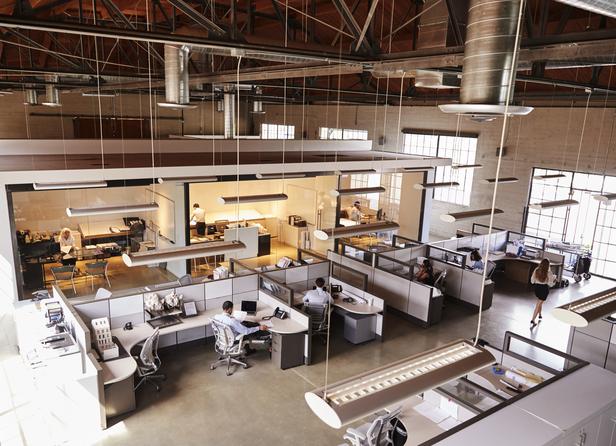With the advent of hybrid work, workers are advocating for more flexibility from their employers. The way commercial buildings are designed needs to truly reflect our times and these new demands. In order to make the most out of their spaces, commercial real estate and offices will have to adapt to these changes, either by repurposing, redesigning or downsizing. However, how do we know exactly how to redesign a space without the proper tools available? And what benefits does it entail?
Adapting means encouraging collaboration between people or employees
Having an office that spurs creativity and innovation amongst your teams starts with the perfect layout and here we don’t just mean desks, but break-out rooms, kitchens with sofas as well as meeting rooms designed specifically for collaboration. In times when human connections are actively sought, commercial real estate has a duty to cater to people’s need for connection and collaboration. It’s therefore important that you align your offerings with current demands to spur teams’ cohesion and innovation.
Adapting means having fit-for-purpose spaces
Hybrid is here to stay, and companies need to quickly adapt to modern way of working requirements. One way you can respond to this is by maximising your space utilisation by operating a hot-desking system, whereby employees can choose their desk for a specific day and time. This not only allows for more flexibility, it also helps spur creativity amongst employees when implemented as an open-plan.
Adapting means diversify your real estate
Real estate overhead is typically a company’s second largest expense due to the rising cost per square foot. However, as much as 40% of space remains underutilised, according to a 2015 CBRE Workplace Strategy survey (CBRE - Asia/ Pacific - Space utilisation the new Frontier). In addition, research has shown that a single unoccupied desk can cost businesses up to $18,000 a year. Adopting a data-driven approach can help you determine which spaces are over-used or under-used to better inform your hybrid strategy. In this day and age, multipurpose real-estate has become crucial for survival. A data-driven solution can facilitate this transition by helping you find new revenue streams from your under-used spaces.
All in all, adapting to new work requirements is a must for commercial real estate and offices. In our current post-pandemic economy, adaptation equals survival and should therefore not be overlooked but addressed as quickly as possible. Reinvigorating, re-purposing and redesigning your spaces are all options that can enable you to make your employees happy whilst bringing in extra revenues. Adopting a data-driven solution like that of BlockDox can help you implement, validate and justify the transition.













